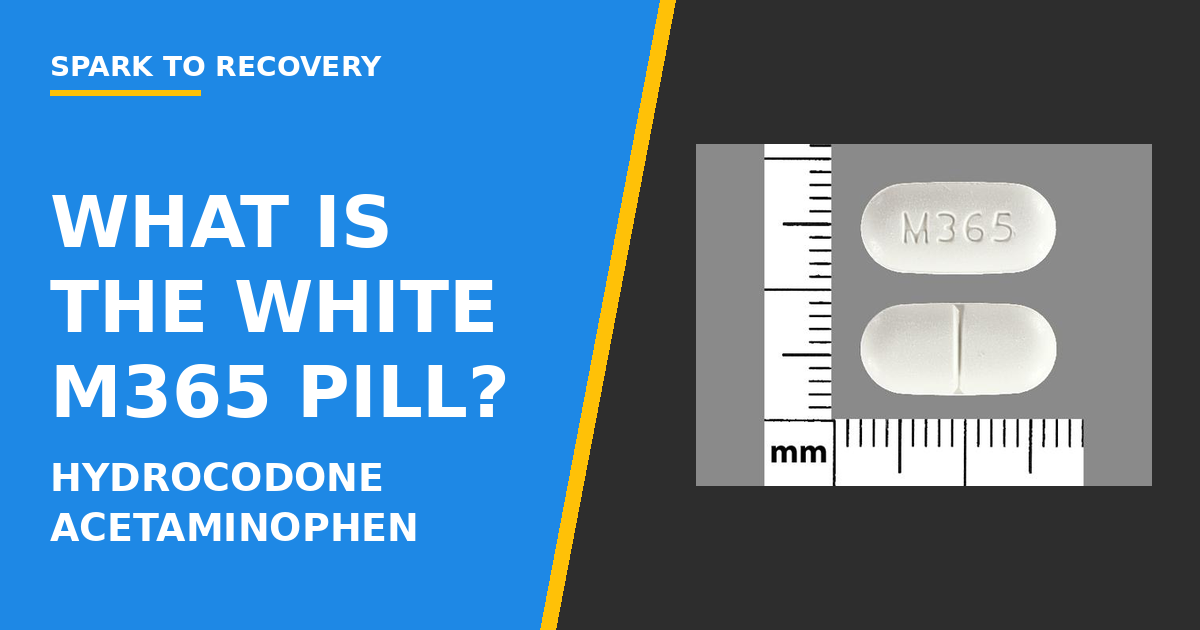Introduction to Addiction
Addiction is a complex and pervasive issue that touches the lives of countless individuals, often weaving its intricate threads into the fabric of society. Understanding the concept of addiction is crucial for fostering awareness and compassion.
Definition and Overview
At its core, addiction is a chronic and relapsing disorder characterized by the compulsive seeking, use, and inability to control the consumption of a substance or engagement in a behavior despite adverse consequences. It goes beyond mere dependence, encompassing a range of physical, psychological, and social dimensions. Individuals grappling with addiction often find themselves in a cycle of craving, consumption, and subsequent guilt or remorse.
The impact of addiction extends far beyond the affected individuals, affecting families, communities, and society as a whole. It is a complex interplay of biological, genetic, environmental, and psychological factors that contribute to its development and persistence.
Types of Addiction
Addiction manifests in various forms, each presenting its unique challenges and implications for those affected. Two primary categories encapsulate the diverse spectrum of addictive behaviors: substances and behaviors.
Substances: Alcohol, drugs, nicotine
The abuse of substances such as alcohol, illicit drugs, or nicotine is a common form of addiction. The allure of these substances often lies in their ability to alter mood, consciousness, or perception, providing a temporary escape from life’s challenges.
Behaviors: Gambling, internet, gaming, shopping
In addition to substances, addiction can manifest through behaviors. Compulsive gambling, excessive internet use, obsessive gaming, and compulsive shopping are all examples of behavioral addictions. These behaviors often serve as coping mechanisms, offering a reprieve from underlying emotional or psychological issues.
The Impact of Addiction
The consequences of addiction reverberate throughout every facet of an individual’s life, leaving an indelible mark on personal, social, and economic spheres.
Personal Consequences
On a personal level, addiction can lead to a decline in physical health, strained relationships, and a deterioration of mental well-being. The constant pursuit of the addictive substance or behavior can consume an individual’s thoughts and actions, hindering their ability to lead a fulfilling and balanced life.
Social and Economic Implications
Beyond personal consequences, addiction has a profound impact on social structures and economic systems. Families may experience fragmentation, communities may witness increased crime rates, and workplaces may grapple with decreased productivity. The economic burden of addiction is evident in healthcare costs, legal expenses, and lost productivity, contributing to a broader societal challenge.
Understanding the Science of Addiction
Addiction is not merely a behavioral choice but a complex interplay of biological, genetic, and environmental factors. Delving into the scientific underpinnings of addiction helps unravel the intricate mechanisms at play.
Neurological Mechanisms
How Addiction Affects the Brain
At the core of addiction lies a profound impact on the brain’s structure and function. The brain’s reward system, governed by a network of neurotransmitters, undergoes significant alterations in response to addictive substances or behaviors. The repeated exposure to these stimuli induces neuroplasticity, reshaping the neural circuits associated with pleasure, motivation, and decision-making.
Role of Neurotransmitters Like Dopamine
Dopamine, often referred to as the “feel-good” neurotransmitter, plays a central role in addiction. Substances like drugs or alcohol trigger an excessive release of dopamine, creating an artificial sense of pleasure. Over time, the brain adapts to these heightened dopamine levels, leading to a diminished response to natural rewards. This desensitization contributes to the compulsive seeking of substances or behaviors to rekindle that diminished sense of pleasure.
Genetic Predisposition
Exploring the Genetic Factors Contributing to Addiction
Genetics plays a substantial role in an individual’s susceptibility to addiction. Research has identified specific genes associated with an increased risk of developing addictive disorders. These genes influence various aspects, including the metabolism of substances, the response to stress, and the predisposition to impulsive behavior. Understanding the genetic components of addiction sheds light on its hereditary nature and informs targeted interventions for at-risk individuals.
Family History and Its Impact
A family history of addiction amplifies the genetic predisposition. Growing up in an environment where addiction is prevalent can expose individuals to both genetic and environmental risk factors. The combination of genetic susceptibility and learned behaviors within families underscores the importance of early intervention and preventive measures.
Environmental Influences
The Role of the Environment in Fostering Addiction
While genetics lays the foundation, environmental factors significantly contribute to the development of addiction. The environment encompasses various elements, such as family dynamics, peer influence, and socio-economic conditions. Exposure to addictive substances, lack of positive role models, and the absence of a supportive social network can all contribute to the initiation and perpetuation of addictive behaviors.
Stress, Trauma, and Their Correlation with Addiction
Stress and trauma act as powerful catalysts for addiction. Individuals often turn to addictive substances or behaviors as a coping mechanism to alleviate the emotional pain associated with traumatic experiences. The neurobiological response to stress further exacerbates vulnerability, creating a cycle where addiction becomes a maladaptive attempt to self-medicate and escape from distress.
Signs and Symptoms of Addiction
Identifying the signs and symptoms of addiction is crucial for early intervention and support. Addiction manifests not only in overt behaviors but also in subtle changes across various aspects of an individual’s life.
Behavioral Signs
Changes in Daily Routines
One of the early indicators of addiction is a noticeable shift in daily habits and routines. Individuals may struggle to maintain a regular schedule, neglecting responsibilities at work, school, or home. Consistent tardiness, absenteeism, or a decline in performance may become apparent as the substance or behavior takes precedence over other life commitments.
Social Withdrawal and Isolation
Addiction often leads to a withdrawal from social circles and activities. Individuals may isolate themselves to hide their addictive behaviors, or may feel a growing disconnect from others due to shame or guilt. Lack of interest in social interactions and a preference for solitary activities become evident as the addiction takes a more central role in their lives.
Physical Signs
Health Deterioration
The physical toll of addiction is observable through declining health. Substance abuse can lead to a range of health issues, including cardiovascular problems, liver damage, and compromised immune function. Behavioral addictions, such as excessive gaming or gambling, may contribute to sedentary lifestyles, further exacerbating physical health concerns.
Changes in Appearance
Addiction often manifests visually, with noticeable changes in an individual’s appearance. Weight loss or gain, poor hygiene, and a general neglect of self-care become apparent as the addictive behavior or substance consumption consumes more time and energy.
Psychological Signs
Mood Swings
One of the hallmark signs of addiction is the fluctuation of mood. Individuals may experience intense mood swings, ranging from euphoria during the engagement in the addictive behavior to irritability, anxiety, or depression during periods of abstinence. These mood fluctuations are often linked to the neurochemical imbalances induced by the addiction.
Cognitive Changes
The cognitive impact of addiction is profound, affecting memory, concentration, and decision-making. Individuals may struggle with cognitive tasks that were once routine, leading to impaired judgment and reasoning. The constant preoccupation with the addictive substance or behavior may overshadow other cognitive functions, creating a cognitive decline over time.
Impact on Mental Health
The intersection of addiction and mental health creates a complex interplay that poses unique challenges for those affected. Understanding the intricate relationship between these two realms is crucial for providing comprehensive care and support.
Addiction and Mental Health Disorders
Dual Diagnosis: Addiction and Mental Health Issues
Many individuals grappling with addiction also face the additional burden of mental health disorders. This co-occurrence is known as a dual diagnosis or comorbidity, where the challenges of managing both conditions simultaneously intensify. Common mental health issues seen alongside addiction include depression, anxiety, bipolar disorder, and post-traumatic stress disorder (PTSD).
Co-Occurrence and Challenges in Treatment
The coexistence of addiction and mental health disorders presents challenges in diagnosis and treatment. Both conditions often exacerbate each other, creating a complex web that requires specialized care. Individuals with a dual diagnosis may find it challenging to adhere to treatment plans, and the effectiveness of interventions can be compromised if both aspects are not addressed concurrently.
The Vicious Cycle
How Addiction Can Exacerbate Mental Health Problems
The relationship between addiction and mental health is often characterized by a vicious cycle. Addiction can exacerbate pre-existing mental health issues, intensifying symptoms and making it challenging for individuals to cope. Substance abuse may provide temporary relief from emotional pain, but eventually, it contributes to a worsening of mental health symptoms.
The Importance of Integrated Treatment
Breaking the cycle requires a holistic approach to treatment that addresses both addiction and mental health simultaneously. Integrated treatment plans recognize the interconnected nature of these issues and provide a comprehensive framework for recovery. This approach involves coordination between mental health professionals and addiction specialists, ensuring a unified strategy to promote overall well-being.
Integrated treatment may include therapies that address both addiction and mental health, such as Dual Diagnosis Anonymous (DDA) meetings, cognitive-behavioral therapy (CBT), and medication-assisted treatment (MAT) when applicable. By addressing the root causes and symptoms of both conditions concurrently, integrated treatment offers a more sustainable path towards recovery.
Treatment Options for Addiction
Addressing addiction requires a comprehensive approach that considers both the physical and psychological aspects of the condition. Various treatment options offer individuals a pathway to recovery, tailored to their unique needs and circumstances.
Medical Approaches
Medication-Assisted Treatment
Medication-assisted treatment (MAT) combines pharmaceutical interventions with counseling and behavioral therapies to address substance use disorders. Medications, such as methadone, buprenorphine, or naltrexone, help manage withdrawal symptoms and cravings, supporting individuals in their journey towards recovery.
Detoxification and Rehabilitation
Detoxification, often the initial step in addiction treatment, involves safely managing withdrawal symptoms as the body eliminates the addictive substance. Following detox, rehabilitation programs provide a structured environment for individuals to address the underlying causes of addiction through counseling, therapy, and skill-building activities.
Behavioral Therapies
Cognitive-Behavioral Therapy (CBT)
Cognitive-behavioral therapy is a widely used approach that focuses on identifying and modifying negative thought patterns and behaviors associated with addiction. CBT equips individuals with practical coping strategies, helping them manage triggers and develop healthier responses to stress.
Motivational Interviewing
Motivational interviewing is a client-centered therapeutic approach that enhances an individual’s intrinsic motivation to change. Therapists collaborate with clients, exploring their ambivalence towards recovery and assisting them in developing a strong commitment to change. This technique is particularly effective in the early stages of treatment.
For comprehensive information on addiction treatment, explore resources from reputable organizations such as the National Institute on Drug Abuse (NIDA).
Support Groups and Aftercare
The Role of Support Groups Like Alcoholics Anonymous
Support groups, such as Alcoholics Anonymous (AA) and Narcotics Anonymous (NA), provide a sense of community and shared understanding. These groups follow a 12-step program, emphasizing personal responsibility, self-reflection, and peer support. Attendance at support group meetings is often recommended as part of ongoing recovery.
Importance of Long-Term Recovery Support
Aftercare is a crucial component of sustained recovery. Long-term recovery support involves ongoing counseling, follow-up care, and participation in support groups. This continuous support helps individuals navigate the challenges of post-treatment life, reducing the risk of relapse and promoting lasting recovery.
Prevention and Education
Preventing addiction and fostering awareness are essential components of addressing this pervasive issue. By focusing on early intervention, education, and community initiatives, it becomes possible to create a supportive environment that mitigates the risk of addiction.
Early Intervention
The Significance of Identifying Addiction Early
Early intervention is a key strategy in preventing the progression of addiction. Identifying signs of substance abuse or behavioral addiction in the early stages allows for timely intervention and increases the likelihood of successful outcomes. Health professionals, educators, and family members play a crucial role in recognizing these signs and initiating appropriate support.
School Programs and Community Awareness
Educational institutions and community organizations play a vital role in prevention efforts. School programs that provide information on the risks of substance abuse, teach coping skills, and foster resilience contribute to building a foundation of knowledge and awareness. Community-wide campaigns and awareness initiatives further reinforce the importance of a united front against addiction.
Public Health Initiatives
Government and Non-Profit Efforts in Addiction Prevention
Governments and non-profit organizations spearhead initiatives to prevent addiction on a broader scale. These efforts include policy measures, community outreach, and funding for prevention programs. Public health campaigns aim to destigmatize addiction, raise awareness about its impact, and promote resources for treatment and recovery.
The Importance of Education in Reducing Stigma
Education is a powerful tool in reducing the stigma associated with addiction. By dispelling myths, providing accurate information, and fostering empathy, education contributes to a more informed and compassionate society. Efforts to educate the public about the complexities of addiction and the potential for recovery help create an environment that supports individuals seeking help without judgment.
Discover government efforts in addiction prevention through organizations like SAMHSA, fostering awareness and education.
Social and Cultural Perspectives on Addiction
Understanding addiction within the broader context of social and cultural perspectives is crucial for developing holistic and effective strategies for prevention, treatment, and support.
Stigma Surrounding Addiction
How Societal Stigma Impacts Individuals with Addiction
The stigma surrounding addiction persists as a significant barrier to treatment and recovery. Individuals with addiction often face judgment, discrimination, and isolation, hindering their willingness to seek help. The societal perception that addiction is a moral failing rather than a complex health issue exacerbates the challenges faced by those affected.
Efforts to Reduce Stigma and Discrimination
Efforts to reduce stigma focus on education, awareness campaigns, and advocacy. By challenging misconceptions and fostering empathy, these initiatives aim to reshape public attitudes toward addiction. Highlighting the scientific understanding of addiction as a medical condition helps dismantle stereotypes, encouraging a more compassionate and supportive societal environment.
To learn more about societal perspectives and efforts to reduce stigma, explore resources provided by American Addiction Centers (AAC).
Cultural Influences
Cultural Attitudes Towards Addiction
Attitudes toward addiction vary significantly across cultures. Some cultures may stigmatize and ostracize individuals with addiction, while others may view it with greater compassion and understanding. Cultural attitudes shape how addiction is perceived, influencing the likelihood of seeking help and the effectiveness of available interventions.
The Role of Cultural Support in Recovery
Cultural support can play a pivotal role in the recovery process. Culturally tailored interventions and support systems acknowledge the unique needs and perspectives of diverse communities. Embracing cultural traditions, beliefs, and practices can enhance the effectiveness of treatment and create a more inclusive and responsive approach to recovery.
Emerging Trends in Addiction Research
The landscape of addiction research is ever-evolving, with ongoing efforts to explore innovative approaches that enhance treatment outcomes and support individuals on the path to recovery.
Technological Interventions
Apps and Online Platforms for Addiction Support
Advancements in technology have given rise to a range of apps and online platforms designed to provide accessible and personalized addiction support. These tools may include self-help resources, goal tracking, and peer support networks, offering individuals convenient and discreet avenues for assistance.
Virtual Therapy and Counseling
Virtual therapy and counseling have become increasingly prevalent, providing a bridge to mental health professionals through video calls and online platforms. This approach ensures broader access to addiction treatment, particularly for those in remote areas or facing barriers to in-person services. The convenience of virtual sessions can contribute to increased engagement in the therapeutic process.
Pharmacological Advances
New Medications and Treatment Approaches
Research in pharmacology continues to yield new medications and treatment approaches for addiction. These developments aim to address specific aspects of addiction, such as cravings, withdrawal symptoms, or the neurobiological mechanisms associated with substance use disorders. The refinement of pharmacological interventions enhances the toolkit available to healthcare professionals in tailoring treatment plans to individual needs.
Research Breakthroughs in Addiction Science
Ongoing research breakthroughs in addiction science deepen our understanding of the biological, psychological, and social factors contributing to addiction. From unraveling the genetic basis of susceptibility to exploring novel treatment targets, these breakthroughs hold promise for more effective, targeted interventions and prevention strategies.
The Role of Family and Community
Family and community play integral roles in the support and recovery of individuals facing addiction. Recognizing the impact of these social structures allows for more comprehensive and effective interventions.
Family Dynamics and Addiction
Impact on Family Relationships
Addiction has profound implications for family dynamics, often straining relationships and creating an atmosphere of tension and uncertainty. The effects ripple through family members, causing emotional distress and potentially contributing to cycles of dysfunction. Understanding and addressing these dynamics is crucial for fostering a supportive environment for both the individual with addiction and their family.
Family-Based Interventions
Interventions that involve the family are essential components of effective addiction treatment. Family therapy provides a platform for open communication, education, and healing. Inclusive treatment plans that involve family members can enhance the chances of successful recovery by addressing systemic issues and building a foundation of familial support.
Community Support
Community Programs for Addiction Prevention
Communities play a pivotal role in preventing addiction through targeted programs and initiatives. Educational campaigns, community forums, and outreach efforts help raise awareness, reduce stigma, and provide resources for prevention. By fostering a sense of collective responsibility, communities can actively contribute to the prevention of addiction.
Grassroots Initiatives and Their Effectiveness
Grassroots initiatives, often led by community members and organizations, have proven effective in addressing addiction at the local level. Support groups, community centers, and outreach programs provide valuable resources and a sense of belonging for individuals in recovery. These initiatives empower communities to take ownership of the addiction challenge and work collaboratively toward solutions.
In summary, addiction is a complex and multifaceted challenge, impacting individuals, families, and communities. From its neurological underpinnings to the social and cultural dimensions, understanding addiction is crucial for effective prevention and treatment.
Reclaim Your Life from addictions! Contact Us.



